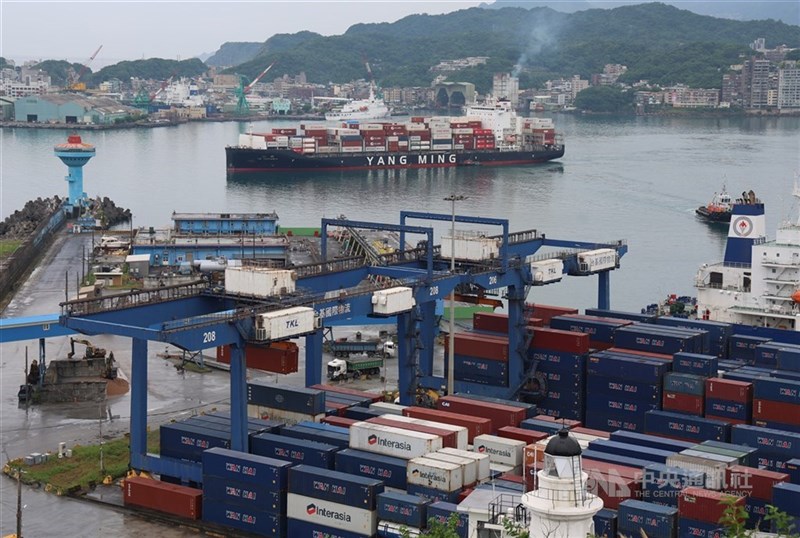Tariff deal with U.S. 'not finalized' amid US$400 billion investment report

Taipei, Nov. 22 (CNA) The Ministry of Economic Affairs (MOEA) said on Friday that a tariff deal with the United States has not been finalized, despite the Financial Times reporting earlier in the day that Taiwan would commit to investing US$400 billion in the U.S. for a lower rate.
Economics Minister Kung Ming-hsin (龔明鑫) told reporters that a deal with Washington has not been struck. Still, once a deal is confirmed, Vice Premier Cheng Li-chiun (鄭麗君), Taiwan's lead tariff negotiator with the U.S., and the Office of Trade Negotiations under the Executive Yuan, will make it public, Kung said.
When asked whether a deal will be reached soon, Kung simply said: "We are working hard on it."
The Financial Times cited an unnamed U.S. official as saying that a draft agreement with Taiwan indicated Taipei would pledge an investment in an amount that is between the US$350 billion promised by South Korea and the US$550 billion agreed upon by Japan, to seek a lower "reciprocal tariff."
The official suggested that Taiwan would pledge to invest US$400 billion in the U.S.
"The difference is that in Taiwan's case, these are not something vague but investments that are being planned or even under way already," the official said in the report.
According to the report, two people briefed on the draft bilateral tariff deal said the commitments from contract chipmaker Taiwan Semiconductor Manufacturing Co. (TSMC) would be part of Taiwan's total investment.
TSMC is investing US$65 billion to build three advanced fabs in the U.S. state of Arizona and mass production at the first fab started in the fourth quarter of 2024. The company has pledged to invest an additional US$100 billion in Arizona over the next few years to build three more fabs, two IC assembly plants and one research and development center.
In response, Taiwan's Office of Trade Negotiations said the negotiation team is continuing talks with its U.S. counterpart through videoconferencing and document exchanges, hoping to strike a deal as soon as possible to allow both sides to move ahead to the next stage, to forge closer bilateral economic cooperation.
In a statement, the office said the negotiation team is exploring possible supply chain collaborations with the U.S. under a "Taiwan model" to seek a reduction of the current 20 percent tariff imposed on Taiwan by the Trump administration.
The office said Taiwan is also seeking a most-favored-nation treatment under Section 232 of the U.S. Trade Expansion Act, as Washington conducts a national security investigation aimed at deciding on tariffs for imports of semiconductor and other devices.
Taiwan's negotiations team is trying to ensure that any adjusted tariff rate for Taiwan will not be added to the existing most-favored-nation tariffs.
According to the office, through the supply chain cooperation under the Taiwan model, Taiwanese enterprises will map out their investment plans in the U.S. on their own by taking advantage of a geographic proximity with their American clients to boost its competitive edge.
Meanwhile, the Taiwan government will provide financial guarantees to these local investors, helping them build industrial clusters in the U.S, as they seek a better investment environment and preferential investment terms provided by the U.S. government through "government to government (G2G) cooperation," the office said.
It added that the Taiwan model, therefore, is different from investment models between the U.S. and Japan or South Korea, and cannot be directly compared to that of those two countries.
-
Society
Taiwan releases forced labor prevention guide for businesses
02/24/2026 09:39 PM -
Politics
KMT to propose legislative oversight for advanced chip technology exports
02/24/2026 09:20 PM -
Society
Phone, text scam attempts fall 36.97% year-on-year in Taiwan
02/24/2026 09:07 PM -
Science & Tech
Google to launch budget Pixel 10a in Taiwan March 5
02/24/2026 08:55 PM -
Society
Free COVID vaccination extended to April 30 ahead of possible surge: CDC
02/24/2026 08:29 PM